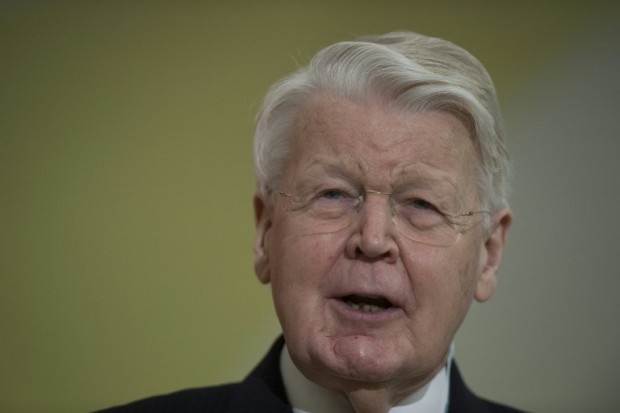
(FILES) This file photo taken on December 7, 2015 shows Iceland’s President Olafur Ragnar Grimsson addressing the “LPAA focus on Energy” session during the COP21 climate change conference in Le Bourget, north of Paris.
Iceland’s president announced on January 1, 2016 he was stepping down after 20 years in the job, paving the way for a presidential election in June. Olafur Ragnar Grimsson, 72, said in his New Year’s message that he had decided not to stand for re-election after five consecutive terms beginning in 1996.
/ AFP / MARTIN BUREAU
Iceland’s president announced Friday he was stepping down after 20 years in the job, paving the way for a presidential election in June.
Olafur Ragnar Grimsson, 72, said in his New Year’s message that he had decided not to stand for re-election after five consecutive terms beginning in 1996.
He said the time was now right to “transfer the responsibilities of the president to other shoulders”.
The president in Iceland has limited powers. He or she can call a referendum on a law passed by parliament if it is felt the whole nation should have a say.
No politician has yet expressed interest in the role, waiting to see Grimsson’s intentions.
According to the Icelandic constitution, the president is elected every four years if there are at least two candidates for the position.
Grimsson’s tenure was marked by the financial crisis of 2008 which devastated the small island’s economy.
He subsequently convened two referendums — in 2010 and 2011 — over the astronomical sums demanded by Britain and the Netherlands after savings bank Icesave went bust.